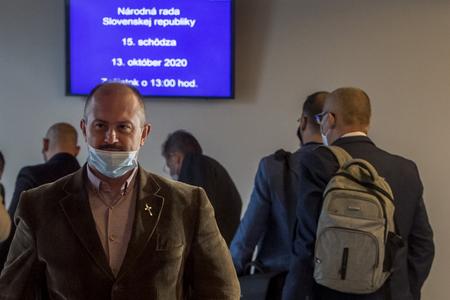Foreign intelligence services try to initiate communication with members of the Slovak parliament and thus influence events in the country, says Defence Minister Jaroslav Naď (OĽaNO)
According to the minister, the Military Intelligence primarily focuses on eliminating activities of the Russian and Chinese intelligence services. Foreign agents try to contact MPs, senior state officials and senior members of the Armed Forces of the Slovak Republic.According to the minister, the Military Intelligence primarily focuses on eliminating activities of the Russian and Chinese intelligence services. Foreign agents try to contact MPs, senior state officials and senior members of the Armed Forces of the Slovak Republic.
"We have this information and we are working with it. I used it in parliament to warn MPs to be careful. Many times they accept an invitation to an event in good faith and do not realize they are a target of a particular country's intelligence service," said the minister.

Weakened activity of Russian intelligence
This spring, Slovakia decided to reduce the staff of the Russian Embassy by 35 people.
"There are about 35 intelligence officers less, they managed one of their networks here. Now it is more difficult for them. Let's not be naive, there are still many Russian and Chinese intelligence service collaborators in Slovakia," warned Naď.
He highlighted that one thing is diplomatic staff and the other is non-diplomatic staff at the embassy with service passports.

Military intelligence inspection
According to Naď, with his consent and in agreement with the former Chairman of the Supreme Audit Office of the Slovak Republic, an inspection of the activities of Military Intelligence in the management of state property was carried out for the first time. Based on the findings of the inspection, the minister took action.
"Some of the findings were not a pleasant read. In fact, it proves how mismanaged the Military Intelligence was when the Smer and SNS parties were in government," said the minister.
Complaints have been filed and existing complaints have been amended with the findings. "The rest is in the hands of the law enforcement authorities," said Naď.




 Stock image. (source: SITA)
Stock image. (source: SITA)